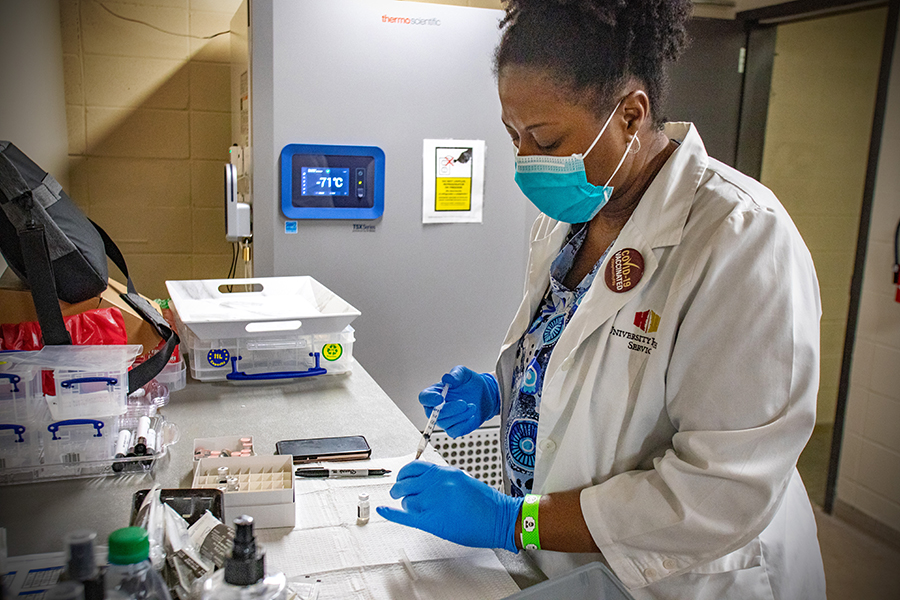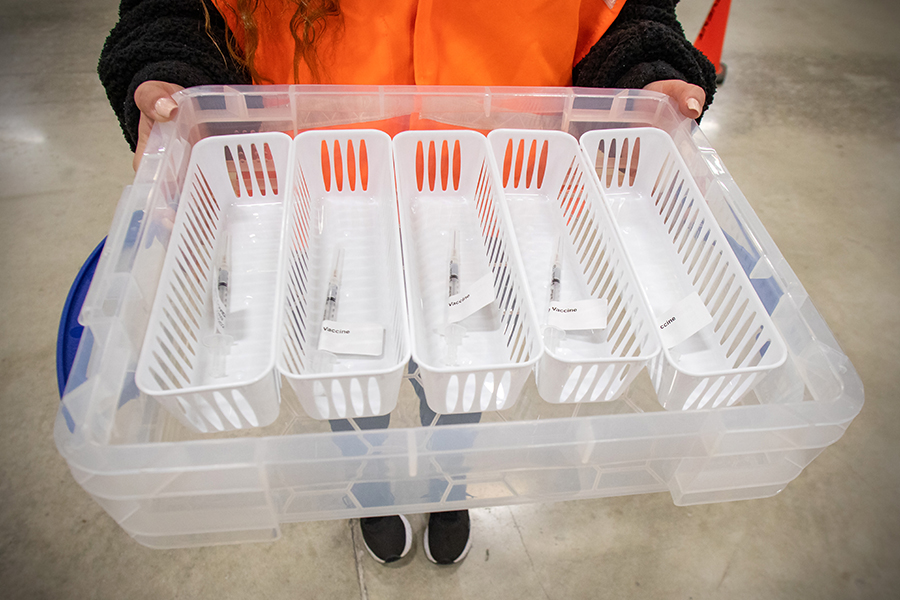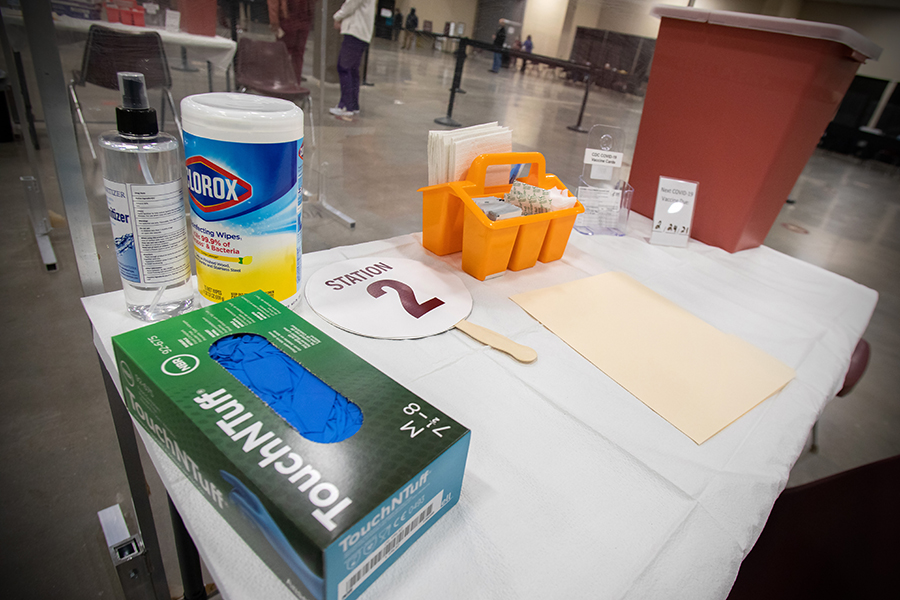
Florida State University is working with the Florida Department of Health in Leon County to vaccinate Floridians against COVID-19.
As part of the ongoing effort to contain the spread of the virus, the university is helping vaccinate Leon County residents on the county’s waiting list to receive a shot. FSU staff at the Donald L. Tucker Civic Center will give approximately 900 county residents their first vaccine dose this week and an estimated 300 their first dose on Feb. 8.
“We moved heaven and earth to do all the behind-the-scenes work and start getting people scheduled for their vaccine appointments in less than 24 hours,” said Kyle Clark, vice president for Finance and Administration. “This truly is a team effort from staff across campus, and we’re happy that we have the resources and capacity to lend the county a hand to get the vaccine administered to Leon County residents quickly and safely.”
Employees from University Health Services, the College of Medicine, College of Nursing and elsewhere in the university are working together in the effort.
“This is a very tall order to fill,” said Ryen Pagel, associate director for Clinical Operations at University Health Services. “It is an immunization campaign unlike we have ever seen before. There are so many different disciplines and professions that have come together to really make this happen at an incredible speed. It’s something very humbling, and it fills me with gratitude to be part of it.”
FSU began administering COVID-19 vaccines to faculty, staff and students age 65 and older in January, so it had the capacity and knowledge to assist the county in its efforts.
Storing and distributing those vaccines was a big logistical challenge that FSU had to address quickly.
The vaccines developed for COVID-19 require cold storage — for the Pfizer vaccine, as cold as –80 to –60 degrees Celsius — and their expiration dates mean they come with a deadline. Another deadline pops up once thawing begins in preparation for administering a vaccine.
University Health Services already had equipment that could store Moderna vaccines, but it did not have freezers that could reach the low temperatures needed to safely store the vaccine developed by Pfizer. Being able to properly use both vaccines helps mitigate any supply issues that come with only having one option.
The university’s procurement team got to work ordering freezers that could properly store the Pfizer vaccine. In the meantime, help came from FSU’s Translational Science Laboratory in the College of Medicine. The lab’s freezers, which are normally used for research purposes, can reach the temperatures needed for safe storage of the Pfizer vaccine, and temperature probes automatically monitor the freezers’ temperatures and alert staff if there is an issue.
The College of Medicine also worked with the university’s Facilities Department and Florida Division of Emergency Management to install a new dry ice machine. That gives FSU the ability to safely transfer vaccines from storage to the injection site.
All of that — special freezers, monitored temperatures and ways to safely move vaccines — are crucial for what’s called a “cold chain,” the chain of custody documenting that the vaccine has been kept at the proper temperature from delivery through to injection.
“We can manage — literally from the time we pick it up — we can manage the transport, the storage and the vaccination of pretty much any vaccine we receive,” said James C. Zedaker, who is leading the university’s testing and vaccination programs. “Everybody is making sure that all this was put together in the right way so that we could do this and maintain that cold chain and never compromise the efficacy of the vaccine.”







